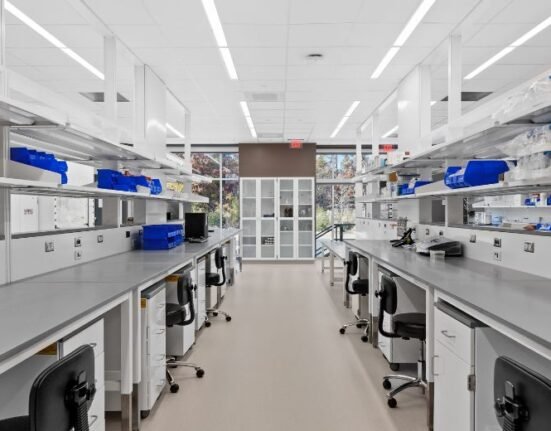HQ Team
December 22, 2023: Anglo-Swedish AstraZeneca Inc., and US-based Ionis Pharmaceuticals, announced the FDA has granted its nod for Wainua drug to treat nervous system impairment.
The Wainua (eplontersen) drug is meant to treat adults with “polyneuropathy of hereditary transthyretin-mediated amyloidosis,” according to a statement.
The USFDA approval was based on the “positive 35-week interim analysis” from final trials “which showed patients treated with Wainua demonstrated consistent and sustained benefit on the co-primary endpoints.”
Michael J. Polydefkis, MD, Professor of Neurology at Johns Hopkins University School of Medicine and an investigator in the study said Wainua helps patients manage the disease.
“Many people living with hereditary transthyretin-mediated amyloid polyneuropathy are unable to fully enjoy their lives because of the relentless, progressive and debilitating effects of the disease.
Disease management
Wainua treatment “gives those who are living with transthyretin-mediated amyloid polyneuropathy help to manage the disease.”
The disease, also abbreviated to ATTRv-PN, is debilitating and leads to peripheral nerve damage with motor disability within five years of diagnosis and, without treatment, is generally fatal within a decade.
AstraZeneca and Ionis will commercialise the drug in the US and are seeking regulatory approval in Europe and other parts of the world.
The joint agreement was recently expanded to include exclusive rights for AstraZeneca to commercialise Wainua in Latin America in addition to all other countries outside the US.
The medicine was granted Orphan Drug Designation in the US and the EU. It will be available in the US in January 2024.
Touch, pain, heat
Transthyretin amyloidosis is a progressive condition characterized by the buildup of abnormal protein deposits called amyloids (amyloidosis) in the body’s organs and tissues.
These protein deposits most frequently occur in the peripheral nervous system, which is made up of nerves that connect the brain and spinal cord to muscles and sensory cells that detect sensations such as touch, pain, heat, and sound.
Protein deposits in these nerves result in a loss of sensation or muscle weakness in the extremities (peripheral neuropathy), according to the National Institutes of Health.
The autonomic nervous system, which controls involuntary body functions such as blood pressure, heart rate, and digestion, may also be affected by amyloidosis.
In some cases, the brain and spinal cord (central nervous system) are affected. Other areas of amyloidosis include the heart, kidneys, eyes, and gastrointestinal tract.
‘Mirror other conditions’
The age at which symptoms begin to develop varies widely among individuals with this condition, typically ranging from age 20 to 70.
Isabelle Lousada, President and CEO, Amyloidosis Research Consortium, said: “People with hereditary transthyretin-mediated amyloid polyneuropathy, and other forms of amyloidosis, are often misdiagnosed since symptoms can mirror other conditions.
“It is exciting to see innovations coming through and increased efforts to raise awareness in an area that has often been overlooked or neglected.”
Eplontersen is currently being evaluated for the treatment of transthyretin-mediated amyloid cardiomyopathy (ATTR-CM), a systemic, progressive and fatal condition that typically leads to progressive heart failure and often death within three to five years from disease onset.
Worldwide, there are an estimated 300,000 – 500,000 patients with ATTR-CM and about 40,000 patients with ATTRv-PN.








